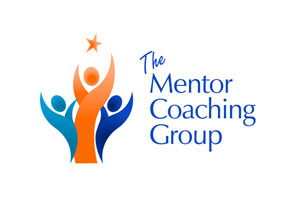 Every 5 – 7 years, ICF conducts an extensive job analysis and review process of their Core Competency model, to then make changes to reflect current understanding of coaching practices. Their core competencies were last updated in 2019.
Every 5 – 7 years, ICF conducts an extensive job analysis and review process of their Core Competency model, to then make changes to reflect current understanding of coaching practices. Their core competencies were last updated in 2019.
ICF has now publicly released the 2025 version of their Core Competencies, which you can access here
ICF describes as follows;
“While the changes are mostly incremental, they bring meaningful enhancements,  including refined language, improved clarity, and strengthened relevance. These updates reinforce the ICF Core Competencies as the foundation for coaching education, evaluation, and practice.
including refined language, improved clarity, and strengthened relevance. These updates reinforce the ICF Core Competencies as the foundation for coaching education, evaluation, and practice.
While no new main competencies are introduced, five new sub-competencies have been added, and revisions have been made to 11 existing sub-competencies. One competency definition was updated, and a glossary of terms has been added. The glossary can be found in the appendix.”
ICF has provided a very useful comparison document, showing the changes between the 2019 and 2025 versions. You can download a copy of the comparison chart here
In this article, I review some of these changes, and offer some thoughts along the way.
Competency 2: Embodies a Coaching Mindset
This competency has the most updates and new points, including an update to the definition. The words in green are newly added: “Engages in ongoing personal and professional learning and development as a coach. Works with coaching supervisors or mentor coaches as needed. Develops and maintains a mindset that is open, curious, flexible and client-centered.”
Other newly added points are:
2.07. Maintains emotional, physical, and mental well-being in preparation for, throughout, and following each session.
2.09. Nurtures openness and curiosity in oneself, the client, and the coaching process.
2.10. Remains aware of the influence of one’s thoughts and behaviors on the client and others.
Carly’s thoughts on Competency 2 changes
 While the core competencies are the same, how they are applied varies greatly by each coach depending on their training, beliefs and philosophy about what coaching is. A coach’s beliefs about their role as a coach intersects with the requests (and demands) of clients. Generally coaching can be used for a wide scope of topics, from envisioning the future, imagining new ways of doing and being, to exploring, understanding (and often resolving) currently dissatisfying situations and experiences.
While the core competencies are the same, how they are applied varies greatly by each coach depending on their training, beliefs and philosophy about what coaching is. A coach’s beliefs about their role as a coach intersects with the requests (and demands) of clients. Generally coaching can be used for a wide scope of topics, from envisioning the future, imagining new ways of doing and being, to exploring, understanding (and often resolving) currently dissatisfying situations and experiences.
For clients to get the best from their coach, we need to be taking care of ourselves, so we are ready and able to be available for our clients in the most present way possible. As coaches, we are in the human development field, and we need to be continuously developing our ‘humanity,’ beginning with taking care of ourselves – emotionally, physically, mentally – to be fully present, open and curious for our clients.
Many coaches are naturally evolutionary, having prioritized their personal development for a long time before engaging in professional coaching education programs. However, even as a long time MCC coach, my evolutionary attitude and mindset continues (and will until the day I die…). For me, it’s a way of life to be continually developing myself as a person. My daily, weekly and monthly practices are critical to my personal well-being, which in turn supports my business success and congruence as a coach. If I’m at my best, I can give my best.
A critical question for each coach: 
“If I’m supporting clients to explore their cherished dreams, their challenging emotions and situations, and explore their identity, how am I taking care of myself so that I can be most present and available for my coaching clients?”
The other aspect of continuous development as a coach is professional evolution. In this case, the foundation being study, practices and trainings that strengthen each coach’s abilities using the ICF Core Competencies as the guidelines.
“It’s what you learn after you know it all is what counts.” ~ Henry S. Truman
 Since 2013, I’ve offered robust mentor coaching programs for ACC, PCC and MCC credential preparation. Some coaches also participate every 3 years to align with the renewal of their credential. A few coaches participate more often as they want to keep developing their coaching skills, coaching presence and coaching competence to their next level…so they continue to be the best coach they can be for their clients.
Since 2013, I’ve offered robust mentor coaching programs for ACC, PCC and MCC credential preparation. Some coaches also participate every 3 years to align with the renewal of their credential. A few coaches participate more often as they want to keep developing their coaching skills, coaching presence and coaching competence to their next level…so they continue to be the best coach they can be for their clients.
A critical question for each coach: 
“What’s my next evolution as a professional coach, no matter how long I’ve been coaching?”
Competency 7: Evokes Awareness
Another change that caught my attention is an update to this point:
7.11. Shares observations, knowledge, and feelings, without attachment, that have the potential to create new insights for the client.
Carly’s thoughts on the Competency 7 change
 The addition of coach sharing ‘knowledge’ can be problematic if a coach believes their value lies in sharing their knowledge with the client.
The addition of coach sharing ‘knowledge’ can be problematic if a coach believes their value lies in sharing their knowledge with the client.
Competency 1: Demonstrates Ethical Practice, 1.06 is, “Maintains the distinctions between coaching, consulting, psychotherapy and other support professions.” Sharing of knowledge could easily shift to the coach moving to a consulting role, telling the client what they think, what they know, how they’ve approached, or what they’d do if they were the client.
Every coach has expert knowledge about many things, including their job history, and possibly their knowledge of certain assessments, frameworks and models. There are also personal experiences the coach has that are another form of knowledge.
While the point says to share ‘without attachment’ we need to be very aware of when we even share any of our knowledge with the client. If we prioritize the sharing of our knowledge over supporting the client to explore their own knowledge, we could be denying the client the benefit of discovering their unique perspectives and solutions.
Which leads back to one of the new points added in Competency 2: (2.10.) “Remains aware of the influence of one’s thoughts and behaviors on the client and others.”
A critical question for each coach: 
“How can I continue to trust my questions and observations to support the client to connect to self-knowledge they may not even know they have?”
I cannot count how many times a client has said to me a version of, “I can’t believe how simple the answer is to what I brought to this coaching session. Your questions and observations helped me to realize how much I already knew and didn’t realize I knew (about myself, about the situation, about…).
Instead, if I prioritize sharing my knowledge with the client, I may rob them of a key benefit of coaching: the client connecting to self-knowledge they didn’t know they had. Most clients don’t have a dedicated listening partner, a place where they can explore their thoughts, feelings and sensations without being judged, interrupted, told, or attention is shifted to what the other person thinks.
 Some of the most challenging ‘work’ is to think for ourselves. Yet that’s a significant benefit of coaching – allowing the client space to consider, to explore, to ponder, to discover, and have awareness emerge. The client has ownership because they discovered the ‘knowledge’ they possessed but didn’t know they possessed. Or completely new insights emerged which became new approaches or solutions the client has ownership of. Which in turn provide forward movement the client can take into actions.
Some of the most challenging ‘work’ is to think for ourselves. Yet that’s a significant benefit of coaching – allowing the client space to consider, to explore, to ponder, to discover, and have awareness emerge. The client has ownership because they discovered the ‘knowledge’ they possessed but didn’t know they possessed. Or completely new insights emerged which became new approaches or solutions the client has ownership of. Which in turn provide forward movement the client can take into actions.
In Closing…
The knowledge a coach can become super competent at – an expert at – is their (coaching) Presence, and continually developing their Professional Coaching Skills to their next level.
The ICF Core Competencies are a fantastic learning tool for every coach at every skill level, to take their presence and coaching abilities to their next level. Consider how you can continue to develop yourself, to be evolving personally and professionally, to be able to serve your clients best in every moment as a Professional Coach.
Written by Carly Anderson, MCC
Are you ready to upgrade your coaching skills, prepare for your next ICF credential, or renew your credential?
The Mentor Coaching Group Program is an ICF approved individual / group mentor coaching program. Approved for 30 of ICF Core Competency CCEs, including 10 hours of mentor coaching. For comparison between my MCC program, and Level 3, go to Q6 on FAQs page
Mentor Coaching Programs Now Open!
Visit this page for more information
 I offer a rich, experiential mentor coaching group and individual program that has many exclusive offerings for participants. You can read some testimonials from real people,FAQs, or find out more about The Mentor Coaching Program here
I offer a rich, experiential mentor coaching group and individual program that has many exclusive offerings for participants. You can read some testimonials from real people,FAQs, or find out more about The Mentor Coaching Program here
I offer other products including The Upgraded Target Approach: Clarifying the ICF Core Competency Model, as well as Ten Characteristics of MCC Skill Level. And a very unique opportunity to hear 15 consecutive coaching sessions with one of my clients in the Butterfly on the Wall Coaching Series.
A long term experienced and continuously active MCC Assessor since 2005, assessing and mentoring for all 3 credential levels. Including being trained to assess using ICF ACC Behaviors, PCC Markers, and MCC Behaviors. As at September 2025, 225 of the coaches I’ve mentored for their MCC preparation have passed ICF MCC exam process (that I know of), as well as hundreds of coaches passed their ACC and PCC exam process. I do my best to communicate ICF publicly available credential information in a simple manner. Mentoring Supervision clients have access to an incredible and exclusive member-only library that includes 40+ coaching recordings that have actually passed ICF MCC, PCC and ACC credential process.
I’m passionate about supporting the professionalism of coaching, which includes often engaging in ICF projects as a volunteer to continue to develop and evolve our profession.

